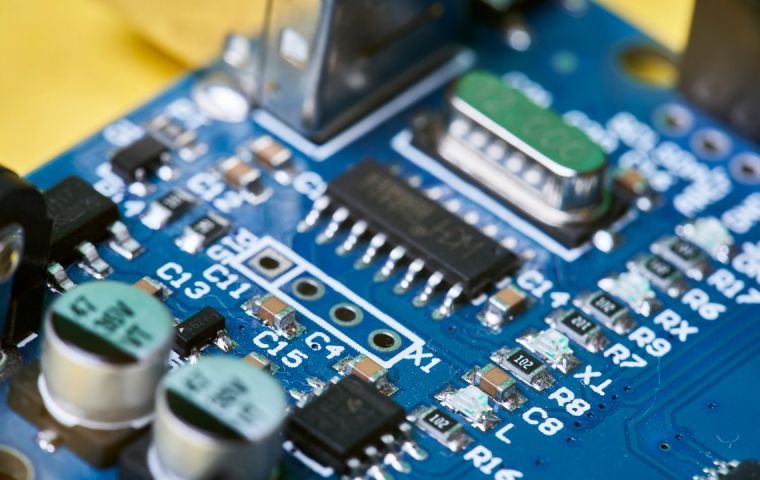MercoPress. South Atlantic News Agency
CHIPS made in US: Biden signs bipartisan legislation to promote semiconductor industry
 “The future of the chip industry is going to be made in America,” Biden said in a Rose Garden ceremony.
“The future of the chip industry is going to be made in America,” Biden said in a Rose Garden ceremony. Flanked by scores of lawmakers, union officials, local politicians and business leaders, US president Joe Biden signed legislation promoting investments in the American semiconductor industry in an effort to ease US reliance on overseas supply chains for critical, cutting-edge goods.
“The future of the chip industry is going to be made in America,” Biden said in a Rose Garden ceremony, referring to the diminutive devices that power everything from smartphones to computers to automobiles. The legislation sets aside US$ 52 billion specifically to bolster the US computer chip sector.
The CHIPS bill, short for Creating Helpful Incentives to Produce Semiconductors for America Act, would provide US$ 52 billion in grants for semiconductor manufacturing and research, tens of billions to support regional technology hubs and a tax credit covering 25% of investments in semiconductor manufacturing through 2026.
The bill has been more than a year in the making, but finally cleared both houses of Congress late last month with significant bipartisan margins. The Senate passed it 64-33, with 17 GOP senators supporting it, while the House quickly followed suit with a 243-187 vote that included 24 House Republicans in favor.
The White House in support of the bill said that Micron, a leading US chip manufacturer, will announce a US$ 40 billion plan to boost domestic production of memory chips, while Qualcomm and GlobalFoundries will unveil a US$ 4.2 billion expansion of an upstate New York chip plant.
The Biden administration has portrayed this legislation as a critical component in countering the influence of a rising China and ensure the US can maintain a competitive edge against Beijing, particularly in semiconductor manufacturing. Allegedly the Chinese government had lobbied US businesses against the legislation.
“The CHIPS and Science Act is going to inspire a whole new generation of Americans to answer that question: What next?” Biden said. “Decades from now, people will look back at this week and all we passed and all we moved on, that we met the moment at this inflection point in history.”




Top Comments
Disclaimer & comment rulesCommenting for this story is now closed.
If you have a Facebook account, become a fan and comment on our Facebook Page!